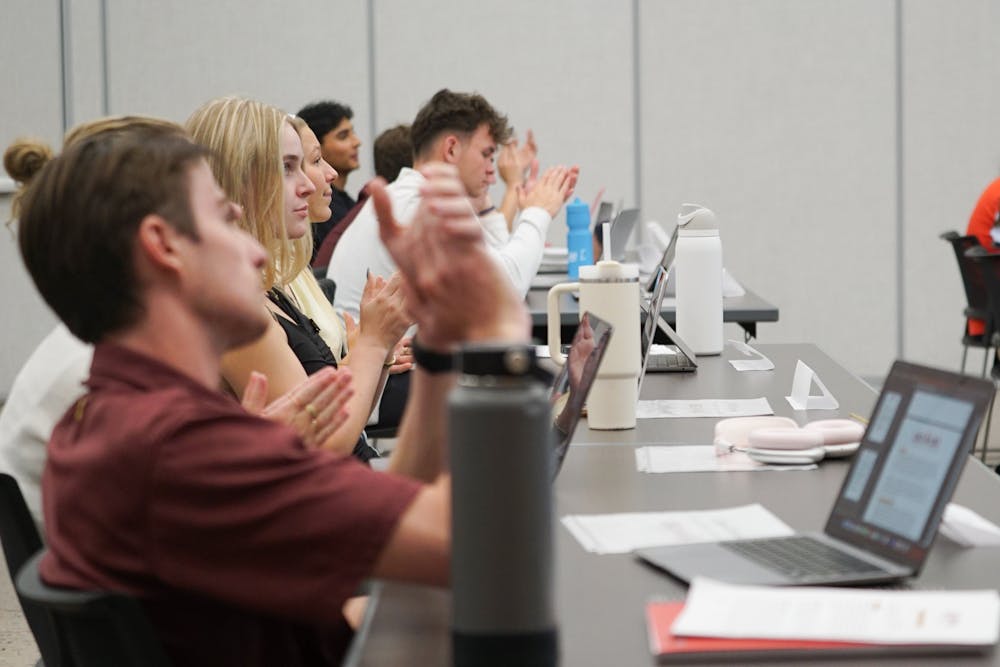Graduate student access to the Safety Escort and Bike Co-Op services is at risk after the Undergraduate Student Government requested an increase in funding.
USG will continue to allow graduate students to use the resources while they come to a joint budget agreement with Graduate Student Government.
"We won't stop handing them (students) rides because safety is our biggest concern," William Hanson, the USG senate president and a senior studying computer science, said.
At the USG senate meeting held on Tuesday, Student Body President Mason DoVico, a senior studying political science and business, said Safety Escort services "will close down for all nonessential rides for graduate students" if a final intergovernmental agreement is not reached by the fifth senate meeting.
Graduate Student Government Assembly President Michael Kintscher said that 24 hours before finalizing the budget, USG informed them that they need to increase the money given to the Safety Escort program or graduate students would no longer be allowed to use the services.
"We can't have this suddenly disappear on us overnight," Kintscher said.
The Safety Escort program is funded by USG and allows students to travel safely throughout the campus between the hours of 7 p.m. and 2 a.m.
Last year, GSG paid $12,000 in funding for graduate students to access Safety Escort services, Kintscher said. However, the student government initially planned to increase the budget by 20% making their contribution around $15,000, according to the assembly president.
Kintscher said DoVico contacted GSG and requested they pay $60,000 for the Safety Escort and Bike Co-Op programs — a 300% increase from what they originally anticipated.
DoVico said in the past GSG never made any payments to USG for the Safety Escort services, other than a $5,000 allocation that began two years ago, which was split between the Tempe and Polytechnic campus.
"As of right now, we are still collecting data from last year on the utilization (by) graduate students," DoVico said.
To meet the budget asked by USG, Kintscher said GSG pulled from other graduate programs and offered $45,000, almost four times the amount they paid in the previous year.
The money will not be transferred until an agreement is reached, Kintscher said.
"We can discuss this, but 24 hours in advance of our approval is a little short," Kintscher said. "So that's kind of kicked off that whole negotiation."
Kintscher said, initially when the discussion regarding payments began, graduate students reported being denied and refused service for a couple of days. As the negotiations continue, services are reopened and provided for graduate students.
GSG is looking to create security for the programs they fund in order to ensure the money provided is for a service that doesn't disappear, Kintscher said.
DoVico said he hopes the two governments can come to an agreement in the near future.
"Ultimately, just working more with the governments is of the utmost importance," DoVico said.
Correction: A previous version of the story misgendered a member of GSG. This has been corrected as of 6:45 p.m. on Sept. 26, 2024.
Edited by George Headley, Senna James, Abigail Beck and Madeline Schmitke.
Reach the reporter at alillest@asu.edu and ehprest1@asu.edu and follow @allylillestol and @ellis_reports on X.
Like The State Press on Facebook and follow @statepress on X.
Allison is a sophomore studying journalism and mass communication. This is her first semester at The State Press. She has also worked at Arizona PBS and Blaze Radio.
Ellis is a sophomore studying journalism and mass communication. This is her first semester with The State Press. She has also worked at Arizona PBS and Blaze Radio.




